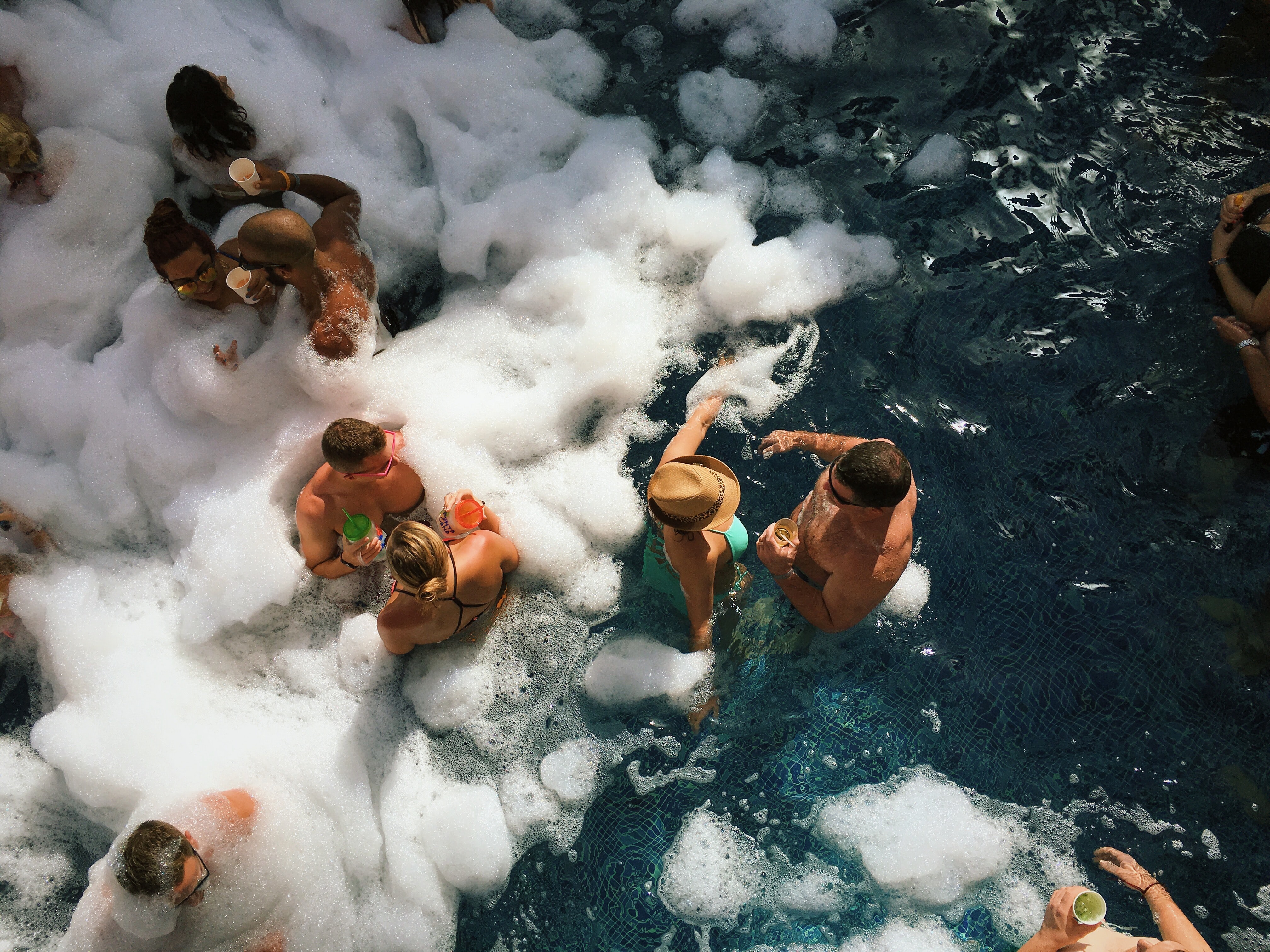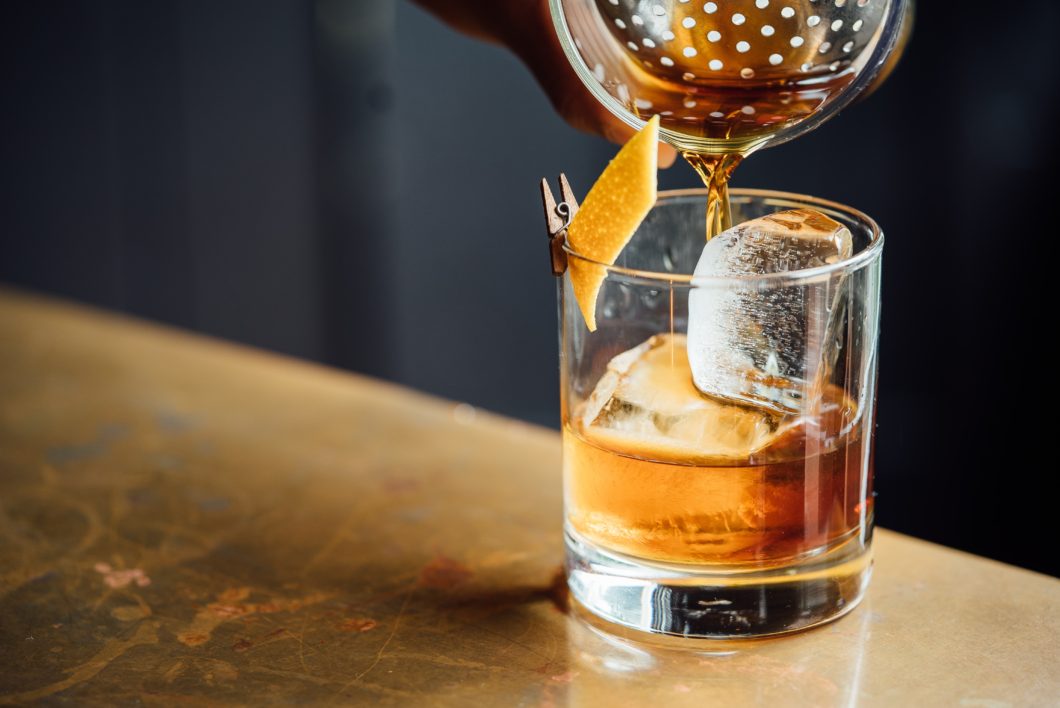Many of us enjoy alcohol—some a little too much—but even if we typically drink in moderation, it’s a fairly common occurrence to accidentally (or purposefully) go too far. There is nothing wrong with alcohol itself or consuming it, but drinking to the point of drunkenness is where we transgress. Most people trivialize this transgression perhaps by laughing it off or saying with feigned incredulity, “I can’t believe I got that drunk.” Even Christians striving to follow God can be subject to veils that Satan pulls over the eyes of the worldly. For example, I didn’t know for a long time that the Bible teaches drunkenness is a sin, and I know I’ve certainly gone too far in the past without understanding the severity of my actions. The fact I went for so long without knowing this was a sin is a testament to how we must study the Bible regularly to keep on track. The Bible warns us not to drink to the point of drunkenness and even instructs us that such a sin can keep us from the kingdom of God.
Envy, murders, drunkenness, revelries, and the like; of which I tell you beforehand, just as I also told you in time past, that those who practice such things will not inherit the kingdom of God.
Galatians 5:21
However, the Bible also teaches us that wine cheers both God and man, so I would not go so far as to say we need to swear off alcohol entirely (Judges 9:13, Psalm 104:15). Knowing what the Bible says about the harms of alcohol should be enough to exercise more caution when drinking, but here are seven more reasons to avoid getting drunk:
- It makes you weak
Even though alcohol can make you feel good, make no mistake, what you are drinking can poison you. Sure, a little is okay, but how much is too much? Even if you only drink enough to get buzzed, you may be feeling “off” the next morning. And if you go overboard, you’ll be paying for it with your afternoon, too. Consistent drinking can lead to long-term health issues. For example, beer can make you overweight, which increases estrogen production. We all need to take pride in our health and strength, and alcohol runs the risk of robbing our vigor and making us weak. - It makes you waste money
If you have enough money to drink on a regular basis, you’re lying to yourself. Do you tithe to God? Are you free from debt? Do you own a property? If you have a property, does it have infrastructure, a house, and a shop? If you have these things, do you have livestock? Are you independent of global supply chains? I’ll be incredibly satisfied when the day comes that I can answer all those questions in the affirmative. The primary goals of male productivity should be to secure a future for his children, create a legacy to leave behind for generations, and increase his autonomy. While the occasional indulgence will not impede these goals, a regular drinking habit (yes, one a day is a still a habit) will slow your progress significantly. If you spend a paltry $25 each week on a six-pack of beer and bottle of wine, that’s $1,300 per year. If you go out on the weekends or to happy hour after work once a week, your expenses could be in the thousands. Better to invest in your property or yourself. - It makes you unproductive
If you drink while trying to work, your focus will be hindered and your abilities diminished. Furthermore, if you get drunk, you will at best feel lethargic the following day and at worst be completely incapacitated. Men should be working towards ambitious goals constantly. If you can afford a day on the couch recovering from debilitating migraines, then you are not working hard enough. You either have, or will have, a family to provide for and you need to bear that responsibility resolutely. - It makes you unreliable
The more you drink, the more you will impair your judgement. If you drink too much, you will be unable to make sound decisions or take action on behalf of your family. Imagine any number of situations in which you need to intervene with capable decisiveness: your child suffers an accident and you need to drive them to the emergency room, an intruder enters your home and you need to defend your family, or someone is away from home and requires your urgent help. These situations are not as uncommon as you think. I can count on both hands times in the past several years I’ve had to take my sisters to urgent care, drive to them when their car broke down, or simply help them over the phone in an emergency situation across the country. Almost every time, these events happened between the hours of 10pm and 4am—peak drinking hours. Thank goodness I wasn’t drinking because I would have been unable to make sound decisions and assist them. It is imperative men remain sober because failure to do so can have serious consequences for your family: you cannot protect, you cannot assist, and you cannot make sound decisions. - It makes you emotionally unstable
One of the most important masculine traits that men need to foster is emotional control. Drunk men typically degenerate into unnaturally exaggerated emotional states; they become angry, aggressive, lustful, overly affectionate, irrational, depressed, chatty, obnoxious, dismissive, and oblivious. Men are creatures of reason and if you are operating from an emotional state, you are operating from a feminine state (in this case, the pathological side of femininity). Women can also benefit abstaining from alcohol because while their base emotional state is perfectly healthy, the intensified emotional state that alcohol puts them in is detrimental. - It makes you do things you regret
Whenever men tell me their most shameful, embarrassing, or foolish stories, odds are they were drunk; they said something that ended in humiliation, did something that resulted in injury, tried to be someone they weren’t, or were so falsely confident they revealed who they really are. Though I try not to have regrets and I don’t have anything that truly haunts me, I do have some less-than-glorious memories from past drunken episodes. - It makes you a slave
You don’t need to be a binge drinker to question your dependency on alcohol. When drinking regularly, people develop an addiction to alcohol analogous to someone’s need to have a daily coffee. If you find yourself thinking about your glass of wine at dinner or your beer after work, you’re a slave. If you need to have a drink to feel more confident or relaxed, you’re a slave. If alcohol is steering your thoughts and not you, then something needs to change.

If someone considers their drinking habits and finds they are getting drunk, drinking every day, or thinking about when they can drink next, they would benefit from cutting back instead of cutting loose. If you are not a slave to alcohol, then this will be an easy adjustment. However, if your mind is more subjugated, then changing your ways may be difficult, but remember, we are simply aiming to reduce consumption. When freeing yourself from any vice, I don’t believe in forced elimination, as this creates a mental problem surrounding avoidance that is a disorder in itself; if you are so weakened by it that you can’t risk exposing yourself to any triggers, then you are still under its control. You must willingly choose to limit your consumption of alcohol and be master to it. If you choose to never drink again, that is perfectly acceptable, so long as it is of your own volition and not because you feel you can’t keep away. If you are one of the people who simply cannot let a drop touch your lips or it’s over before it starts, then you have a self-control problem which will manifest in many places in your life. In that case, it’s not just a drinking problem and you will need to address the greater issue of self-control. If you are simply in the habit of drinking, but otherwise fully capable of self-governance, you just need to set up some systems to change your habit. To start, remove alcohol from your house. I’m not a chocolate addict, but it is a lot easier to limit my consumption if I don’t bring it home in the first place. You can also do yourself a favor by shunning social situations that involve excessive drinking (e.g., bars, clubs, sporting events, poker night, etc.). Finally, allow yourself some occasions to drink, if that is enjoyable to you. For example, I usually only drink when I dine out, go to someone’s house, or am on vacation, but even in those circumstances I still might not partake. To do so every time would condition an unhealthy expectation for the next opportunity to drink.

Alcohol is a gift from God, but it can become a vice if misused. While we should treat it with care, alcohol is meant to be enjoyed. Jesus’ first public miracle was to turn water into fine wine at a wedding (John 2), but scripture doesn’t give us any reason to believe He was drinking every day. We know God wants us to enjoy ourselves, but we need to prioritize His law, our goals, and our health over excessive indulgence. Take pride in your duty to provide for and protect your loved ones, and don’t allow alcohol to interfere with that responsibility.
If you liked this article and want to keep up to date with future posts, you can sign up for my newsletter below. I promise I won’t blow up your inbox.
